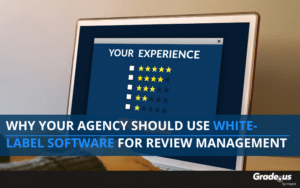You can’t make your agency grow and succeed on its own. You need people. Great people.
But as any HR guy or gal anywhere in the world would tell you, recruiting, hiring, and retaining a dream team isn’t easy.
Turns out, the hiring part, at least, is all about striking the proper balance.
Find the balance between balancing your budget and growing your team
Ask a dozen consultants-turned-founders why they didn’t start hiring sooner, and the answer would likely be the same: serious cash flow fears. Labor is the biggest source of overhead in any organization, and putting a team together involves a bunch of fun new obligations to our friends down at the IRS.
Scary stuff. But don’t let it stop you.

“Balancing cash flow with hiring is good,” notes Ryan Ruud, founder and CEO of Lake One, LLC.
“But in services, a bunch of work can come fast. It can put you behind the 8-ball because it takes a few months for employees to ramp.”
There is no magic moment for knowing when you have hit this balance. Much depends on your business model. If you use contracts you can safely go and sell a bunch of contracts before hiring some people to get the work done. If you don’t, you might have to just decide where you need the most help, get specific about what that help looks like, and take the risk.
For another great resource on this topic, check out Neil Patel’s article on the right time to hire your first agency employee.
Find the balance between in-house talent and outsourced talent
I don’t think I’d be too remiss in saying there are few industries that absolutely rely on freelancers quite like the digital marketing industry does. There are even digital marketing companies set up as little more than a team of dedicated freelancers all committed to providing a guarantee they’ll work for you, with you, and with each other to take care of every task their team covers.
Nothing wrong with using this reality to your advantage when you’re working on putting together a more permanent team.
You can do this one of two ways.
One way is to decide what absolutely needs to happen in-house versus what can be outsourced safely
Account executives are almost always in-house, though there’s no reason it has to be that way. PPC and SEO guys often wind up in-house too. Content creators are often contractors, even though they may continue to work for your company for years. Even so, you might need or want a creative director to manage the content creators and graphic folks.
“In-house” in this case just means you’re putting the worker on a W2. Plenty of companies of every stripe keep their employees scattered in home offices around the globe, and, again, the digital marketing agency seems to be leading the charge there.
So before you commit to cutting regular paychecks, complete with payroll taxes, ask yourself if you truly have enough work to fill someone’s day for 40 hours at a time. And ask yourself exactly why you want to lock them in to working for you, and you alone. If you can answer those questions, you might just be ready to commit to the hire.
You can also work freelancing right into your hiring process
This is the approach Jason Parks takes. He’s the co-founder of Cleveland Marketing King, a full-service agency using their in-house team as a strong selling point.
“We refined our process by giving candidates paid tasks,” says Parks. “For example, we had our graphic designer freelance a project for us prior to hiring her to make sure she was the right fit. We are able to learn more about a candidate by how she reacts to a small project than we are during a short interview.”

This is a fantastic approach in part because HR people are starting to conclude interviews don’t work. 81% of new hires fail, and some are suggesting swapping out interviews for “audition”-style vetting processes anyway. Our industry happens to be ready-made for them.
Creating a balanced hiring process
While “auditions” are a solid option there are reasons why you might not want to go there. For one thing, that either means making up a project and paying someone to do it, or it means trusting a perfect stranger with client work, someone who might not, in fact, be a working freelancer with a track record you can verify right now.
And even auditions can be gamed. Plenty of actors nail auditions and then flake out on rehearsals. Anyone can bring their “A-game” in the short term.
Or you might just need a way to narrow your audition time down to the top 3 strongest candidates. Either way, taking a few extra steps can go a long way towards making sure you make good choices.
Write better job descriptions
Skip the meaningless laundry list. “The ideal candidate will have a BA from a solid university, at least 4 years of experience doing XYZ, can weave a basket underwater, and is demonstrably a member of Equus ferus unus.”
Come on, already.
That stuff’s meaningless. Are you really going to turn down an awesome candidate who only has three years of experience?
How much do you really care about whether they graduated college? Hell, you might want someone who was smart enough to drop out before racking up $70,000 in student loan debt. They might be a lot more chill about accepting a smaller paycheck.
And the more mind-numbing you make this list of requirements, the less likely you are to get a full pool of good candidates to choose from. Women and minorities tend to avoid applying unless they tick every box on the laundry list, even the ones that don’t matter much to you.
It would be awfully stupid to miss a black woman who is an absolute SEO superstar because you wrote up a job description that made her think she doesn’t have a chance.
Instead, think in terms of “skill | result”
What do you want your hire to do?
Nail it down, then talk about it. You don’t even have to use that stuffy corporate language.
“We need an SEO who is a master detective, someone who can analyze why our client’s pages aren’t ranking, and who is organized and communicative enough to get the problems solved. Would love to know about websites you’ve helped rank in the past, including the URL of the site and the keywords you got results for.”
Beyond work ethic and cultural fit that’s probably all you care about, so why muddy the waters with a bunch of arbitrary characteristics?
Obviously if a “softer” characteristic is important to you, include that.
“We’d like to see a solid work history indicating your ability to make 2+ year commitments to the organizations you join” is a completely fair thing to say if you’re going to toss any resume indicating a history of job-hopping. That’s not an item on an arbitrary laundry list. It’s a hard-and-fast guideline for how you intend to hire, and is good to know.
Don’t interrogate, communicate
Don’t just give lip service to the idea that a job interview is supposed to be this two-way street where candidates get to decide if the organization is right for them as much as you’re deciding if they’re right for you.
And keep in mind you may be doing that by accident. There’s a power imbalance here. You know it, your candidates know it. And you’re the one with the power.
But that doesn’t mean you can’t give an honest, clear picture of what the landscape looks like.

“We were surprised how honest communication with high-profile candidates inclined them to take the offer,” says Illia Termeno, Director of the Extrabrains Marketing Agency. “For example, we were open about disclosing not all the internal processes were established, and we were expecting some turbulence. This message hasn’t chased a candidate away yet, and moreover, the candidates felt we cherish transparency.”
Having a conversation about the strengths and weaknesses of your organization, about what you hope to accomplish, and where both you and the candidate see them fitting into that vision is a far more productive use of your time.
It's likely to produce more insights about your candidates than rehashing the same tired old interview questions (even the behavioral ones) that have been published and republished all over the internet, ad nauseum.
You’ve found them, but can you keep them?
It’s easier said than done, but stay tuned. I’ll cover motivating and retaining these superstars in Part II.
About the Author
Raney C. Hudson
Raney C. Hudson is an independent content consultant with a 10+ year track record in the digital marketing industry.









